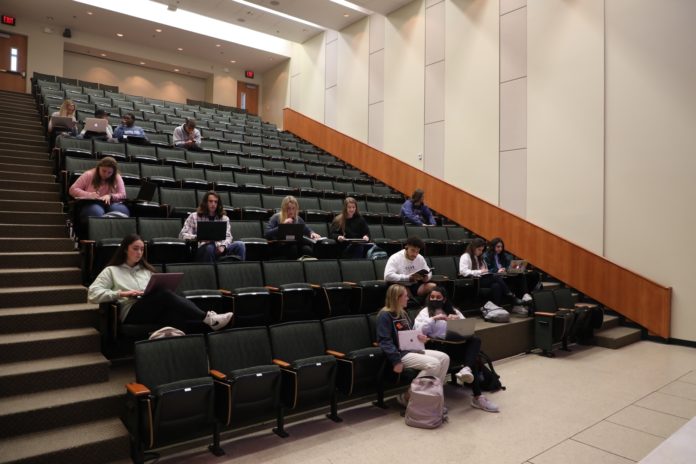By Ana Ruiz Brictson | Staff Writer
Attendance policies on different campuses in Texas vary compared to Baylor’s newly reinstated policy.
At the beginning of the spring semester, Baylor students were made aware by their professors that Baylor’s attendance policy had been brought back to its normal accountability. Now, students are expected to meet each of their professors’ required attendance points in order to reach academic success.
“Attendance at class meetings is essential to academic success,” Baylor’s attendance policy reads.
Students from Southern Methodist University (SMU), St. Edwards University, Texas Christian University (TCU), Texas A&M University and Rice University have each shared what the attendance policy is like at their school.
SMU sophomore Arturo Gonzalez, St. Edwards sophomore Alejandra Bringas and TCU freshman Madison Bennett all said the attendance policy depends on the type of professor each student has.
According to TCU attendance policies, “regular and punctual class attendance is essential for academic success and no assigned work is summarily excused because of absence regardless of the cause. Records of class attendance are the responsibility of the faculty.”
A 2017 article from SMU’s newspaper, The Daily Campus, states, “SMU does not have an official attendance policy for the university, according to the SMU Student Affairs website. Attendance instead is at the discretion of the professor.”
Gonzalez and Bennett both said in their schools, some professors might give the option of having one to three unexcused absences, and after, those students may begin to suffer consequences in their grades if they continue to miss class.
“I feel like if you are smart enough and you are not skipping class, you won’t struggle with this because you will always have those two absences you can count on to miss class,” Gonzalez said.
“I personally like that some professors don’t take attendance because we are adults and we are in charge of our own decisions,” Bringas said. “There’s no need to penalize an absence when a student is already deciding to penalize themselves by not going.”
According to St. Edwards policies, “St. Edward’s considers regular attendance in all classes one of the important obligations of the student. Each instructor is responsible for establishing attendance rules for his or her own class and providing them to the class in written form.”
Texas A&M sophomore Daniel Gomez said attendance depends on the size of the classroom and whether the professor has a specific policy for their class.
According to Texas A&M policies, “Class attendance and participation is an individual student responsibility. Students taking traditional face-to-face courses are expected to attend class and to complete all assignments by stated due dates.”
Regarding COVID-19, Gomez said students could excuse themselves from class by filling out a form if they tested positive for the virus.
“Some classes can be viewed online; they are recording through Zoom,” Gomez said. “So that’s always great if you miss a class. You can go back and look at the video. For the most part, most of the classes are like that since I got here.”
Rice sophomore Cadan Hanson said to his knowledge, the university has no attendance policy; it only encourages and expects all students to attend all of their classes.
According to Rice University policies, “Students are expected to attend all scheduled activities for all of the classes for which they are registered during the entire course of the academic semester for which they are enrolled.”





